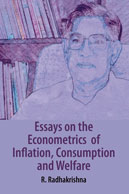New Releases...
Download Catalogue...
Download Excel Data
Download PDF Catalogue
You will get a Excel file with detail about catalogue.
You will get PDF file with detail about catalogue.
Detailed info...

Hard-cover • 2015
Pages: 446
ISBN: 9789332701830
INR 1295
+ Add to Cart
Publisher:
Academic Foundation
India's Development Story
EDI-Two Hundredth Volume
Raj Kapila‚ Uma Kapila (Eds.)
Praise for this book
<p>Excerpts from the Foreword</p>
<p>While there is no dearth of available material, both in terms of views and research presentations through various electronic media, a publication like the EDI continues to be a precious resource for providing at one place, some of the best pieces of academic writing and also important reports and policy documents on different aspects of our country ’s economy. That is why EDI has also become an important source of policy ideas and analyses to the country’s policy makers as well as opinion leaders.</p>
<p> </p>
<p>The most important aspect of EDI is its eclectic approach in selecting material. You will find here outstanding work of scholars representing different schools of thought such as Neo- Marxist, Keynesian, neoliberal. I cannot over emphasize the value of such an open approach for nurturing scholarship<br />
in India.<br />
<strong> — Vijay L. Kelkar</strong><br />
Chairman of the Forum of Federations, Ottawa;<br />
India Development Foundation, New Delhi and Janwani.<br />
Earlier, he was Chairman of the 13th Finance Commission;<br />
Advisor to the Minister of Finance (2002-2004);<br />
and is known for his role in economic reforms in India.</p>
About the Author(s) / Editor(s)
<p><strong>Raj Kapila</strong> is Director, Academic Foundation. Earlier, he has been with Planning Commission, Government of India; Ministry of Commerce and Industry; Industrial economist to Government of Punjab; Secretary, the Vanaspati Manufacturers Association of India; and Advisor, Hindustan Vegetable Oil Corporation. He has written extensively and has authored and edited several books.</p>
<p> </p>
<p><strong>Uma Kapila</strong>, author/editor of several books on Indian economy, retired as Reader, Department of Economics, Miranda House, University of Delhi. She has taught Indian economy to undergraduate students for more than 42 years and is the author of the widely-read book <em>Indian Economy since Independence</em>, currently into its 25th edition. Presently, she is Senior Editor, Academic Foundation.</p>
Contributors
<p><strong>Shankar Acharya</strong> is currently Member, Board of Governors and Honorary Professor, Indian Council for Research and International Economic Relations (ICRIER), New Delhi. He is also the Non-Executive Part-time Chairman of the Board of Directors of Kotak Mahindra Bank; besides serving on the governing boards of other national research organisations and the Advisory Committee on Monetary Policy of the Reserve Bank of India (RBI). He is a member of several advisory corporate boards, and writes a fortnightly column for the financial daily, Business Standard.</p>
<p><br />
<strong>C.P. Chandrasekhar</strong> is Professor, Centre for Economic Studies and Planning, School of Social Sciences, Jawaharlal Nehru University (JNU), New Delhi. He has published widely in academic journals and is a regular columnist for Frontline (titled Economic Perspectives), Business Line (titled Macroscan) and the website of The Hindu (titled Economy Watch). </p>
<p><br />
<strong>K.C. Chakrabarty</strong>, former Deputy Governor, RBI, started his career in teaching and research at the Banaras Hindu University. Earlier, he was Chairman of the Indian Bank and then Punjab National Bank. He has recently joined the board of Indiabulls Housing Finance Ltd (IBHFL) as an independent director.</p>
<p><br />
<strong>P. Chidambaram</strong>, former Finance Minister, Government of India (GoI), is an Indian politician affiliated with the Indian National Congress. A corporate lawyer, he was earlier the Union Home Minister.</p>
<p> </p>
<p><strong>Bibek Debroy</strong>, a professional economist, has been recently appointed as a full-time member of the newly-created NITI Aayog or National Institution for Transforming India. Earlier, he was Director, Rajiv Gandhi Institute for Contemporary Studies, Rajiv Gandhi Foundation, New Delhi; Consultant to the Department of Economic Affairs, Ministry of Finance, Government of India (GoI); and Secretary General, PHD Chamber of Commerce and Industry (PHDCCI). </p>
<p><br />
<strong>Jayati Ghosh</strong> is Professor of economics at JNU, New Delhi, and the Executive Secretary of International Development Economics Associates (Ideas). She was the Chairperson, Andhra Pradesh Commission on Farmers’ Welfare (2004) and Member, National Knowledge Commission (2004-2009). She is a regular columnist for several Indian journals and newspapers and is closely involved with a range of progressive organisations and social movements. </p>
<p><br />
<strong>Ashok Gulati</strong> is currently Infosys Chair Professor for Agriculture at ICRIER. Earlier, he was Chairman, Commission for Agricultural Costs and Prices (CACP), GoI; and Director, International Food Policy Research Institute (IFPRI). He also served as NABARD Chair Professor at the Institute of Economic Growth, and as Chief Economist at the National Council of Applied Economics Research (NCAER) in India. He has published widely in international and Indian journals, and is a prolific writer in media as well.</p>
<p><br />
<strong>Surbhi Jain</strong> is Director, Commission for Agricultural Costs and Prices (CACP), Ministry of Agriculture, GoI. </p>
<p><br />
<strong>Raj Kapila</strong> is Director, Academic Foundation. Earlier, he has been with Planning Comission, GoI; Ministry of Commerce and Industry; Industrial economist to Government of Punjab; Secretary, the Vanaspati Manufacturers Association of India; and Advisor, Hindustan Vegetable Oil Corporation. He has written extensively and has authored and edited several books.</p>
<p><strong>Uma Kapila</strong>, author/editor of several books on Indian economy, retired as Reader, Department of Economics, Miranda House, University of Delhi. She has taught Indian economy to undergraduate students for more than 42 years and is the author of the widely-read book Indian Economy since Independence, currently into its 25th edition. Presently, she is Senior Editor, Academic Foundation.</p>
<p><br />
<strong>Padma Iyer Kaul</strong> is Communication Controller of Accounts, Jammu and Kashmir, Department of Telecom, Ministry of Communication & IT, GoI. Earlier, she was working as Director, Economic Advisory Council to the Prime Minister.</p>
<p><br />
<strong>Vijay L. Kelkar</strong> is currently Chairman of the Forum of Federations, Ottawa; India Development Foundation, New Delhi and Janwani—a social initiative of the Mahratta Chamber of Commerce, Industries and Agriculture (MCCIA) in Pune. Earlier, he was Chairman of the 13th Finance Commission; Advisor to the Minister of Finance (2002-2004); and is known for his role in economic reforms in India. </p>
<p><br />
<strong>Rakesh Mohan</strong>, former Deputy Governor, RBI, is presently the Vice Chairperson of Indian Institute for Human Settlements. He was appointed in November 2012 as an Executive Director of the International Monetary Fund (IMF) for a three-year term. He remained an advisor to numerous ministries in GoI, including industry and finance. He will shortly be taking over as India’s Executive Director at the IMF, Washington D.C.</p>
<p><br />
<strong>Deepak Mohanty</strong> is Executive Director, RBI. The areas supervised by him are monetary policy, economic research and statistics. Earlier, he served in the IMF as Senior Advisor. </p>
<p><br />
<strong>N.A. Mujumdar</strong> (late) was a distinguished economist who had wide interests in rural issues (particularly the food economy), monetary and fiscal policies, and international issues. He retired as Principal Advisor, Department of Economic Analysis and Policy, RBI, in 1988. He was also Editor of the Indian Journal of Agricultural Economics. </p>
<p> </p>
<p><strong>R. Nagaraj</strong> is Professor, Indira Gandhi Institute of Development Research, Mumbai. Earlier, he was Visiting Professor, Woodrow Wilson School, Princeton University, New Jersey, US; Visiting Professor, Hosei University, Tokyo; Visiting Fellow, Centre for International Studies, Princeton University, New Jersey, US; and Assistant Professor, Institute of Public Enterprise, Hyderabad. </p>
<p><br />
<strong>Pulin B. Nayak</strong> is Professor of Economics at the Delhi School of Economics (DSE), University of Delhi. Earlier, he held the Agatha Harrison Fellowship at St Antony’s College, Oxford; and was Director, Delhi School of Economics. </p>
<p><br />
<strong>Ila Patnaik</strong> is Principal Economic Advisor to the GoI. Earlier, she was RBI Chair Professor at the National Institute of Public Finance and Policy (NIPFP), New Delhi and has worked at the NCAER, ICRIER and as Economics Editor of the Indian Express. </p>
<p><br />
<strong>Indira Rajaraman</strong> was a Member of the 13th Finance Commission. Earlier, she held the RBI Chair at the NIPFP, Delhi; and was on the Economics faculty of the Indian Institute of Management, Bangalore. She writes regularly in the Financial Press.</p>
<p><br />
<strong>Raghuram G. Rajan</strong> is Governor, RBI. Earlier, he was Chief Economic Advisor, Ministry of Finance, GoI. He was also chief economist at the IMF. For his book Fault Lines: How Hidden Fractures Still Threaten the World Economy, he was awarded the Financial Times-Goldman Sachs prize for the best business book in 2010.</p>
<p><br />
<strong>C. Rangarajan</strong>, a distinguished former Member of Parliament and Ex-Governor of the RBI, was Chairman of the Prime Minister’s Economic Advisory Council; served as the Governor of Andhra Pradesh and Chairman of 12th Finance Commission. Presently, he is Chairman, Madras School of Economics; President, Indian Statistical Institute; and Founding Chairman, C.R. Rao Advanced Institute of Mathematics, Statistics and Computer Science.</p>
<p> </p>
<p><strong>C.H. Hanumantha</strong> Rao is presently Chancellor, Hyderabad Central University; Chancellor, ICFAI Foundation for Higher Education (deemed to be University), Hyderabad; Honorary Professor, Centre for Economic and Social Studies (CESS), Hyderabad and Institute of Economic Growth (IEG), University of Delhi. He was a Fellow, IEG, University of Delhi, as well as its Director (1997-1980) and Chairman (2002-2008). One of the Founder-Members of CESS, Hyderabad, he was its Chairman during 1995-2007. </p>
<p><br />
<strong>Y.V. Reddy</strong>, an Indian Administrative Service (IAS) officer of the 1964 batch, is Chairman of the 14th Finance Commission of India. Earlier, he was Governor, RBI. He has held the positions of Secretary (Banking) in the Ministry of Finance and Principal Secretary in the Government of Andhra Pradesh. He has also worked with the governments of China, Bahrain, Ethiopia and Tanzania. </p>
<p> </p>
<p><strong>Alok Sheel</strong>, IAS of the Kerala Cadre, has over 30 years of experience in public administration. Apart from extended stints in the finance departments in both Kerala and the GoI, he has interfaced with multilateral financial institutions such as the World Bank, IMF and UNDP, and also has anchored India’s engagement with the G20. He is currently Additional Chief Secretary to the Government of Kerala.</p>
<p><br />
<strong>Manmohan Singh</strong> was the 14th Prime Minister of India from 2004 to 2014. He began his bureaucratic career as an advisor in the Ministry of Foreign Trade. Over the 1970s and 1980s, he held several key posts in the GoI, such as Chief Economic Advisor (1972-1976), Governor, RBI (1982-1985) and Deputy Chairman, Planning Commission (1985-1987). In 1991, as Finance Minister, Dr Singh carried out several structural reforms that liberalised India’s economy.</p>
Print Brochure...
Print as it is
Customised brochure
You will get a printout of what you see on your screen under 'Detailed Info'(Uneditable).
You will have the opportunity to edit the text and adjust the extent to fit on A4 size sheet or more accordingly as you desire. Plus, you can download the edited/customised Brochure or simply print it (CTRL + P).


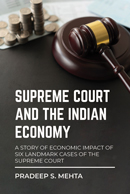



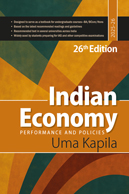
-web-194.jpg)
-front.jpg)
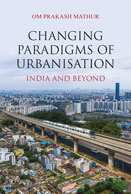





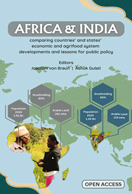
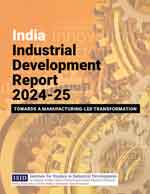
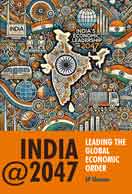
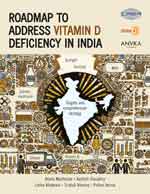

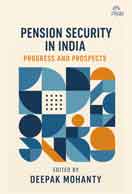
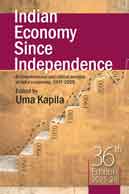
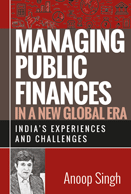
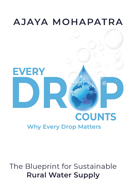
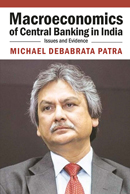



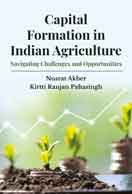











-COVER-web-194.jpg)





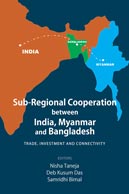










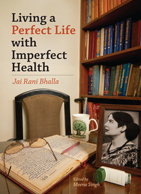












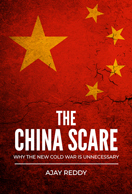
.jpg)






